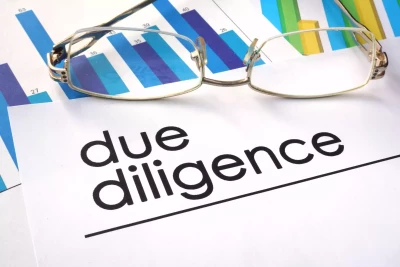The Crucial Role of Due Diligence in the Transport Industry
April 23, 2024
 In the fast-paced world of transportation logistics, every decision can have far-reaching consequences. No matter your role in the supply chain, the key to navigating this complex landscape lies in diligent preparation and thorough research. Recent turmoil across the industry highlights the critical importance of due diligence in safeguarding against potential risks and liabilities.
In the fast-paced world of transportation logistics, every decision can have far-reaching consequences. No matter your role in the supply chain, the key to navigating this complex landscape lies in diligent preparation and thorough research. Recent turmoil across the industry highlights the critical importance of due diligence in safeguarding against potential risks and liabilities.
Whether you’re a shipper, carrier, or broker, it is necessary for all parties to conduct thorough due diligence before entering into any transportation agreement. Whether it’s vetting potential partners or assessing the financial stability of service providers, the message is clear: ignorance is not an option.
Carriers, in particular, play a pivotal role in ensuring the smooth flow of goods from point A to point B. However, they also face inherent risks, especially when dealing with brokers and shippers whose financial health may be uncertain. By conducting comprehensive background checks and regularly monitoring the financial status of their partners, carriers can mitigate these risks and protect their interests while ensuring operational continuity.
“These guys have got to do their due diligence,” says OOIDA’s Jim Jefferson. “Everybody’s got to make sure that they’re checking who it is that they do business with before they take those loads.”
Similarly, shippers must exercise caution when selecting transportation providers. While the allure of lower prices may be tempting, cutting corners on due diligence can prove costly in the long run. By thoroughly evaluating the financial stability and track record of carriers and brokers, shippers can minimize the likelihood of disruptions to their supply chains and avoid potential legal entanglements.
How can proper due diligence shield your transport operation from harmful legal outcomes? Watch the latest episode of the Stay In Your Lane Podcast for key insights on this topic.
“When you have a relationship with a carrier with brokerage authority, if they’re exposing you without your knowledge, you should not be in business with them in the first place,” says Slate Kamp, Director of Logistics and Transportation at Litehouse Inc. “But a lot of times you don’t know until it’s too late.”
The legal implications that can arise in the event of disputes between carriers, brokers, and shippers can be complex, with heavy implications for all parties involved. Clear contractual terms and proactive risk management are essential to prevent misunderstandings and mitigate liabilities. It is also important to take measures to preserve valuable business partnerships, even when things go wrong.
 “How important is this customer exactly? What’s the monetary amount?” asks Attorney Thomas Kern, Partner at Benesch, Friedlander, Coplan & Aronoff LLP. “If it’s a principal thing, you may want to have a dispute. But if it’s a kind of a one-off situation, my advice would be that you don’t want to bother the customer.”
“How important is this customer exactly? What’s the monetary amount?” asks Attorney Thomas Kern, Partner at Benesch, Friedlander, Coplan & Aronoff LLP. “If it’s a principal thing, you may want to have a dispute. But if it’s a kind of a one-off situation, my advice would be that you don’t want to bother the customer.”
The importance of ongoing vigilance and proactive risk mitigation cannot be overstated. In an industry marked by rapid change, stakeholders must stay informed and maintain open lines of communication. By regularly reviewing contracts, monitoring financial indicators, and addressing potential red flags promptly, stakeholders can safeguard their businesses and uphold their commitments to customers.
In the transport industry, due diligence is not just a best practice—it’s a fundamental necessity. By prioritizing thorough research, clear communication, and prudent risk management, carriers, brokers, and shippers can navigate the complexities of the transportation landscape with confidence and integrity. In an industry where reliability and trust are paramount, there’s no substitute for careful preparation and informed decision-making. Triple T Transport prides itself on being a high-value partner for dependable, award-winning 3PL services. Triple T is an employee-owned company, and the daily logistical decisions made at Triple T are in line with the future success of our partnerships of both shippers and carrier networks.














